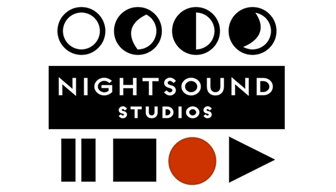
 |
|
February 2026 . . . . “A Love Letter to Temporality” 
I recently made the observation that I’m starting to get vexed when I realize it’s time to purchase more toilet paper or toothpaste or some other consumable daily household item. I gentle-parented myself through the thought and got even more annoyed thinking about the some odd thousand toilet paper purchases I’d potentially make during my lifetime. A momentary fleeting thought, but a nagging one. A couple weeks before Christmas, my younger sister comes over to go through the cedar chests our parents have used to store photographs in since, well, forever. Family photo albums, wedding photography, stills dating back into the forties and fifties, and dear god, so many Quality Photofinishing envelopes. We gawk through our mom’s quilted-covered, string pearls and lace-edged prom album and her quintessential Jennifer Grey Dirty Dancing do. That moment captured so perfectly in time it feels like I had been there too and am looking back through a memory of my own. The chest has photos of when my dad and his sisters were children, and photos taken when my mom and her brother were in college. There are rolls and rolls of negatives of the beach at Isle of Palms, where my grandparents had lived. Hundreds of images of waves and sunsets, planted among pix of my house, my aunts’, parents’, and cousins’ homes and family events where we all face the camera and cheese, like easter eggs. It seems to me for a moment that my grandpa had just been frivolous with his film as I hold up the negatives to a lamp and realize one shot after the next is either a wave or a sunset. But the truth is in that cedar chest, waves and sunsets enough to fill a gallery, yet no two quite the same. We are lifting things out of the chest chronologically and strategically laying them out on the floor — the further down we dig, the older the contents get. Our childhood pictures are scattered around us, my sister’s first grade pixie haircut yearbook photo bashfully grinning at the top of the pile. Looking back, she always hated that haircut, an opinion which my mom and I always dramatically disagreed with, fawning over her short hair every time she would talk badly about it. Then again, I felt the same way about the (bangs included, and a hard emphasis on homemade) bowl cut I had in second grade. We keep unloading the chest until she picks up what looks to be a journal’s-amount of looseleaf A5 paper tied together with twine through their punched holes. The smell of the old pulp with the cedar from the chest as she tries to decipher the scrawled cursive. June 12, 1974, she reads aloud. I screech a “What?!” (as if every item older than my own twenty-six years that I’ve held is some shocking revelation into the passage of time — which I guess it is). I scoot closer by her side so I can read over her shoulder and realize it’s our dad’s notebook from when he was seventeen. We look at each other and giggle over some of the entries and I try not to get too much of that millennial melodramatic it’s their first time living, too soap.
Sept 26 1974 All entries throughout the journal had been written in pen until we flip to this page.
Dec 14 1974 This is when we finally put the notebook down and give my dad a call. We laugh so hard my lips are sticking to my teeth and my cheeks hurt.
Olivia — mermaidblotter@gmail.com
|